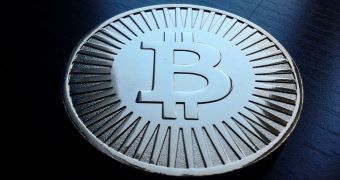All 30,000 Bitcoins from the Silk Road bust went to a single buyer, US Marshals Service (USMS) revealed, days after the auction took place.
Ever since the online black market Silk Road was taken down last fall, the US government has expressed its intention to put the seized Bitcoins up for auction.
And so, last month, the auction was announced. There were 9 Series A packets of 3,000 BTC each and one Series B packet with 2,656 Bitcoins. All ten packages were put up for auction on Friday, June 27, for 12 hours.
Those who were interested in the investment had to announce their intention prior to the auction and even to transfer some $200,000 (€146,415) to prove their desire was genuine.
“The US Marshals Bitcoin auction resulted in one winning bidder. The transfer of the bitcoins to the winner was completed today,” said the US Marshals Service in a statement.
It looks like the 42 bidders that had been vetted by the USMS issued a total of 186 bids, but even so, only one individual got his hands on the trove of coins that is now valued at some $19 million (€13.9 million).
According to the rules, any of the bidders could submit an order for any number of BTC blocks available and could even receive the maximum total that they showed interest in. This means they could get one block, or as it shows, the entire collection of seized Bitcoins. If there was a tie, the first bid would have received the loot, but it didn’t reach this point.
SecondMarket, one of the most prominent known-bidders on the list, had previously announced that it was outbid on every single Bitcoin block.
In a situation that raised many eyebrows, the USMS managed to put itself in a rather stupid situation after unveiling the names of all bidders interested in the Silk Road stash by sending them all an email containing information about the auction. The addresses and names of these individuals were not hidden, so their identities were exposed ahead of what was supposed to be an anonymous auction.
It would be interesting to know just who the new owner of the 30,000 Bitcoins is, but unless he or she wants to reveal their identity, it seems unlikely that we’ll know. Scratch that. If the USMS launches yet another disastrous email, we may just find out, but it’s likely that they’ll be more careful this time around.

 14 DAY TRIAL //
14 DAY TRIAL //